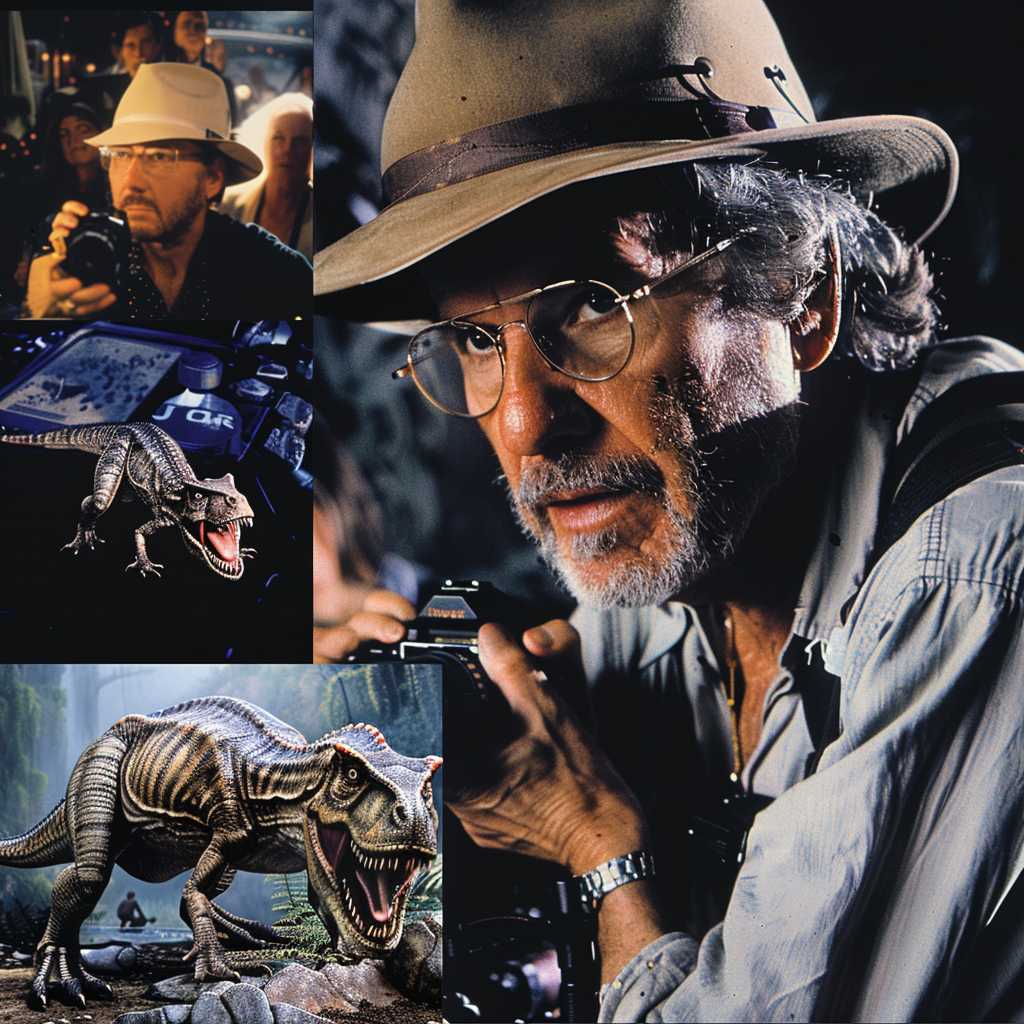The Enduring Legacy of Steven Spielberg: A Cinematic Icon
Steven Spielberg is universally recognized as one of the most influential filmmakers in cinema history. His career spans over five decades, boasting an impressive portfolio that ranges from genre-defining blockbusters to poignant historical dramas. Spielberg’s imaginative vision and storytelling prowess have earned him critical acclaim, numerous awards, and a lasting impact on both the film industry and pop culture.
Early Life and Introduction to Film
Steven Spielberg was born on December 18, 1946, in Cincinnati, Ohio. He discovered his passion for filmmaking at an early age, using a Super 8 camera to make amateur films. Spielberg’s early experiences with making movies were formative, cultivating his potential as a future storyteller.
Breakthrough and Rise to Prominence
Steven Spielberg’s major directorial breakthrough came with ‘Jaws’ (1975), a thrilling movie about a great white shark terrorizing a seaside community. ‘Jaws’ was critically and commercially successful, effectively establishing the summer blockbuster and catapulting Spielberg into the limelight.
Following this success, Spielberg directed several other box office hits that became cultural phenomena. The adventures depicted in ‘Raiders of the Lost Ark’ (1981) and its sequels propelled the swashbuckling archaeologist Indiana Jones—one of cinema’s iconic characters—into the forefront of American cinema. Meanwhile, ‘E.T. the Extra-Terrestrial’ (1982) tugged at the heartstrings of audiences worldwide with its touching story of friendship between a young boy and a stranded alien.
Venturing into Serious Drama
While known for captivating audiences with his enthralling ventures into science fiction and adventure, Spielberg has proven equally adept at directing serious dramatic films. His foray into profound narrative storytelling showcased versatility not previously associated with directors of mainstream cinema.
Notable among these works is ‘Schindler’s List’ (1993), which told the harrowing true story of Oskar Schindler and his efforts to save Jewish workers during the Holocaust. ‘Saving Private Ryan’ (1998), another landmark film, provided one of the most realistic portrayals of war ever captured on screen. Both films garnered critical acclaim and further solidified Spielberg’s stature as a consummate filmmaker.
Innovation and Technological Pioneering
An innovative force in cinema, Spielberg has been at the forefront of using cutting-edge technology to tell his stories. He was among the first directors to embrace digital filmmaking techniques and CGI, contributing significantly to what is now a standard in the industry.
Such innovation is clearly visible in ‘Jurassic Park’ (1993), which utilized groundbreaking computer-generated imagery to create realistic dinosaurs—a feat that revolutionized special effects in film.
Passion for Filmmaking and Project Diversity
Throughout his career, Spielberg has explored numerous other genres and subjects demonstrating an undiminished passion for different types of filmmaking. Whether focusing on historical figures in ‘Lincoln’ (2012) or dabbling in science fiction with ‘Minority Report’ (2002), he approached each project with remarkable diligence and creativity.
Influence on Other Filmmakers and Media
Steven Spielberg has not only touched the lives of moviegoers but also inspired generations of aspiring filmmakers. Many contemporary directors cite him as an influence, while elements from his work are visible across different mediums like television and video games.
Spielberg has also contributed to the industry by vouching for the cinematic arts through his support for film preservation and through dialogue about important issues within Hollywood, including diversity and representation.
Awards and Recognitions
Unsurprisingly, Steven Spielberg’s trove of honours reflects his significant contributions to the art form. A multiple Academy Award winner, he has received various accolades, including Best Director Oscars for ‘Schindler’s List’ and ‘Saving Private Ryan.’
